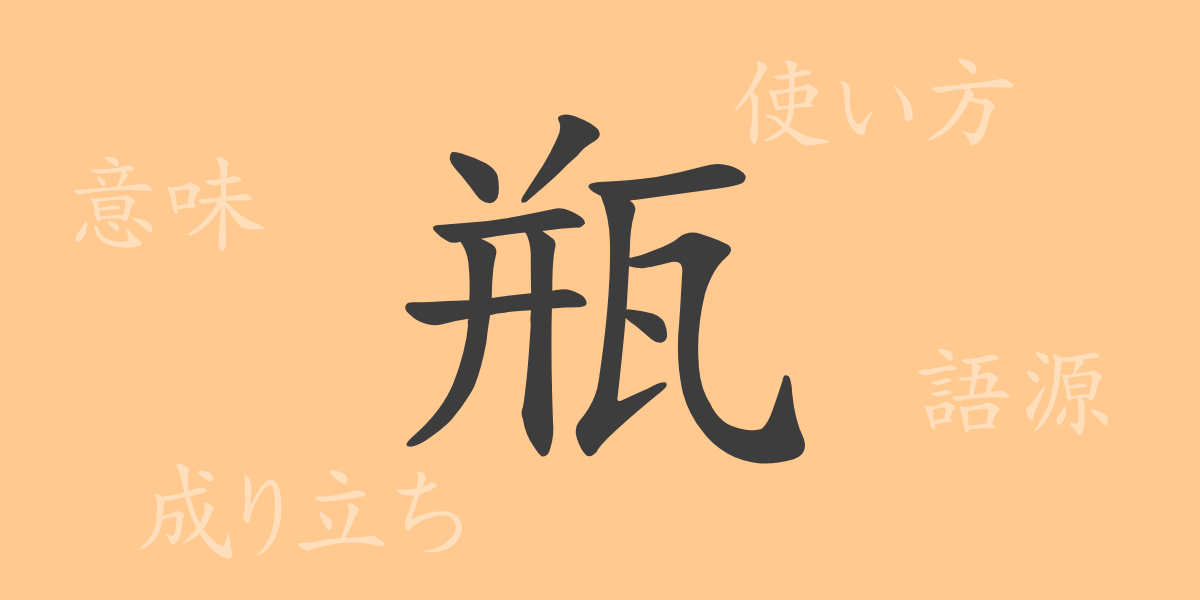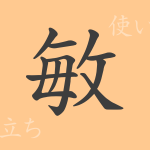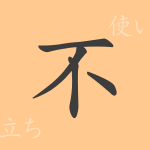In Japanese culture and daily life, the unassuming yet significant presence of the “瓶” (bin) can be felt. This small glass product is deeply rooted in our everyday lives. However, its history and how it is integrated into our language are not widely known. In this article, we will shine a spotlight on the 常用漢字 (jōyō kanji) “瓶” (bin), delving into its origins, meanings, uses, and even the idioms and phrases that feature this character.
Origins of 瓶 (bin)
The origins of “瓶” (bin) date back to ancient China, specifically the Yin dynasty. Initially, it referred to pottery and earthenware, but eventually, it came to denote glass containers. As a kanji, “瓶” (bin) is a phono-semantic compound character, where “瓦” (ga) indicates the sound, and “并” (hei) indicates the meaning. “并” (hei) represents two objects placed side by side, symbolizing a container that can store items.
Meanings and Uses of 瓶 (bin)
“瓶” (bin) refers to a container used for holding liquids or powders. In Japan, various types of bottles, such as 酒瓶 (sakebin – sake bottles), 瓶詰 (binzume – bottled goods), and 花瓶 (kabin – flower vases), are commonly used in daily life. Transparent glass bottles are particularly popular for their ability to easily display contents and their excellent preservative qualities, making them widely used for storing food and beverages.
Reading, Stroke Count, and Radical of 瓶 (bin)
How is the kanji 瓶 (bin) read and what are its components in Japanese?
- Reading: In 音読み (on’yomi – Chinese reading), it is read as “ヘイ” (hei) or “ビン” (bin). There is no 訓読み (kun’yomi – Japanese reading).
- Stroke Count: 瓶 (bin) has a total of 11 strokes.
- Radical: The radical of 瓶 (bin) is “瓦部” (gabu – tile section), characterized by the “瓦” (ga) at the top.
Idioms, Phrases, and Proverbs Using 瓶 (bin)
There are several idioms, phrases, and proverbs in Japanese that feature the character “瓶” (bin). Here are some well-known examples:
- 瓶詰め (binzume) – The act of bottling items for preservation, or the items that have been bottled.
- 瓶底眼鏡 (binzoko megane) – Extremely thick-lensed glasses, or a person wearing such glasses.
- 瓶に詰める (bin ni tsumeru) – An idiom expressing the act of restricting or confining something.
- 瓶詰の魔人 (binzume no majin) – A proverb likening a once-contained but now-released dangerous force to a genie in a bottle.
Summary of 瓶 (bin)
The “瓶” (bin), indispensable in Japanese life, has a rich history, meaning, and diverse usage. Despite being an ancient container, its importance remains unchanged in modern times, being used in various contexts. Additionally, the character “瓶” (bin) has seamlessly integrated into our language, adding color to our communication through idioms and phrases. We hope this article has provided you with a fresh perspective on the familiar presence of the “瓶” (bin).

























